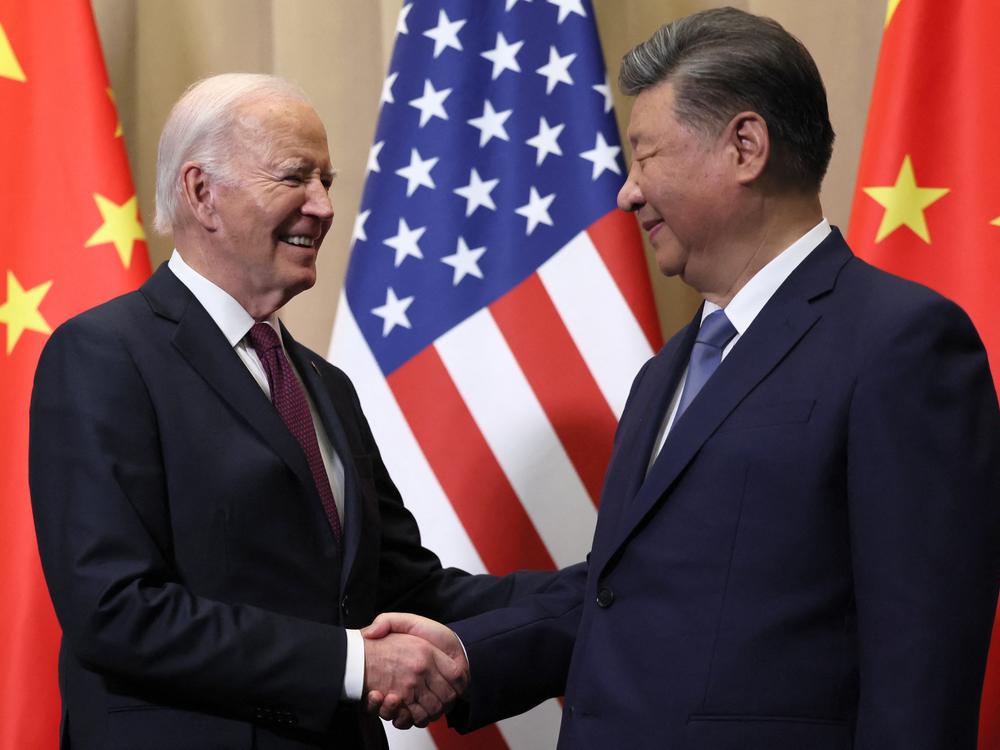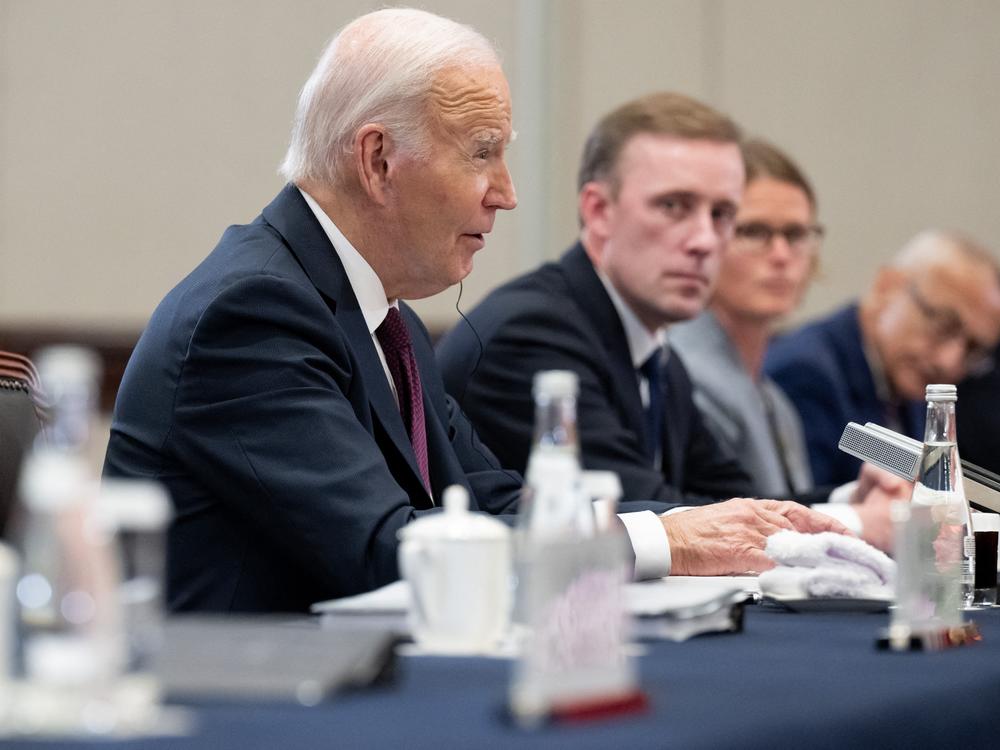Section Branding
Header Content
Biden and Xi take a first step to limit AI and nuclear decisions at their last meeting
Primary Content
LIMA, Peru — President Biden and Chinese President Xi Jinping on Saturday agreed that any decision to use nuclear weapons should be controlled by humans, not by artificial intelligence.
It's the first time that China has made this statement, and it comes at a time when Biden is getting ready to leave office. But Biden's national security adviser Jake Sullivan told reporters that the agreement was an important first step for the two nuclear powers to address a long-term strategic risk.
Biden's goal in the meeting — his last with Xi before President-elect Donald Trump takes office in January — was to emphasize the importance of stability in the relationship during the transition of power, and to try to cement gains he had made with Xi on issues like counternarcotics and climate.
Xi said his country wants to work with the incoming Trump White House. "China is ready to work with the new U.S. administration to maintain communication, expand the cooperation and manage differences," Xi said, while also noting that "Our position of resolutely safeguarding China's sovereignty, security and development interests remains unchanged."
Xi criticized Biden's export controls on sensitive technology
At the start of the 90-minute meeting, held on the sidelines of the Asia-Pacific Economic Cooperation summit in Lima, Xi said the relationship between the two countries was "the world's most important bilateral relationship," a point Biden echoed. "How we get along together is going to impact the rest of the world," Biden said.
Xi noted that the bilateral relationship had "gone through ups and downs" during Biden's term, and took specific aim at the Biden administration's export controls on advanced technology. The restrictions are used for advanced semiconductor manufacturing tools, the most advanced types of semiconductor chips and technology used in military systems, hypersonic missiles, autonomous systems, and surveillance.
In his opening remarks, Xi spent considerable time talking about competition in "an age of flourishing sci-tech revolution" and said: "Only mutually beneficial cooperation can lead to common development. 'Small yard, high fences' is not what a major country should pursue" — a direct reference to the export control policy.
Biden's team is advocating to the incoming administration to carry on the export controls, Sullivan said.
Leading up to the meeting, Sullivan had told reporters that he saw some continuity with the incoming Trump administration, singling out Rep. Mike Waltz, who Trump named as his national security adviser, and Sen. Marco Rubio, who Trump will nominate for Secretary of State, for their focus on the strategic challenges posed by China.
Trump had made tariffs on imports of Chinese goods a feature of his first term in office — tariffs that Biden largely kept in place — and vowed during his campaign to hike tariffs on China again in his second term.
Sullivan said Biden reiterated his concerns about Chinese trade practices during the meeting.
He also said Biden expressed concerns over China's support for Russia's defense industrial base, and urged Xi to use his influence over North Korea to stop that country from sending more troops to fight for Russia against Ukraine.



